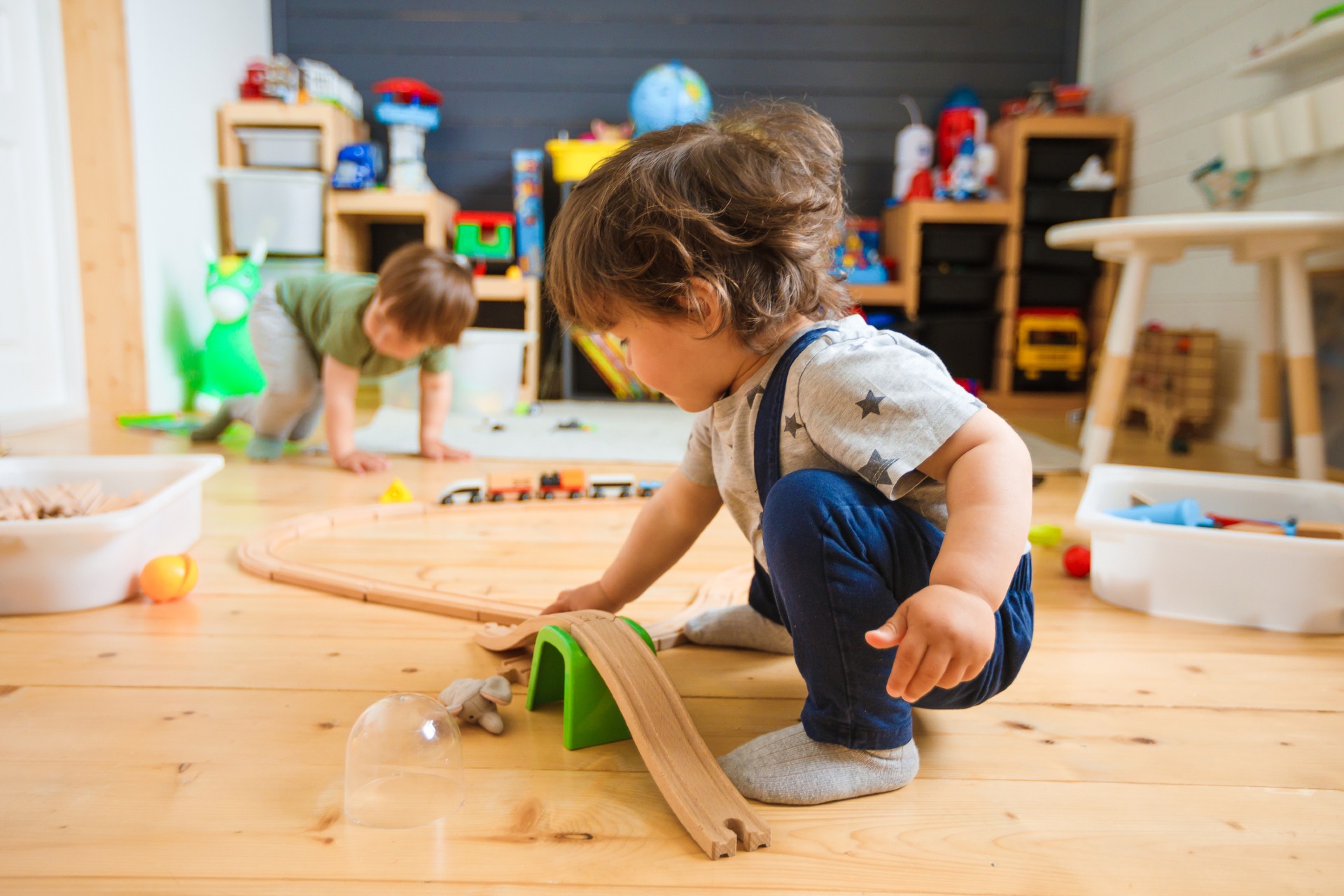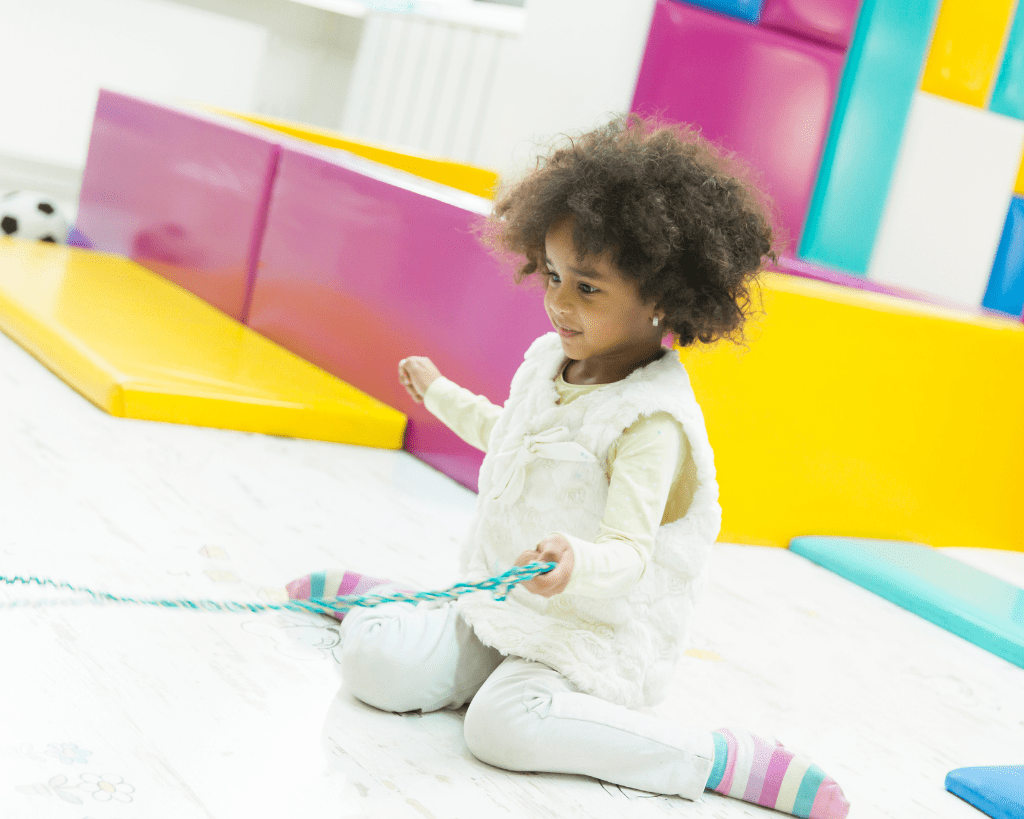Understanding the Significance of Childcare for Your Toddler's Social Advancement and Understanding Experiences With Engaging Activities
The importance of daycare fit a toddler's social advancement and understanding can not be overemphasized, as it provides a structured atmosphere filled with engaging activities that are pivotal for early development. These experiences not only improve social interaction however additionally act as a crucial system for establishing interaction skills, emotional regulation, and strength. Comprehending exactly how these aspects adjoin can provide insight right into promoting self-reliance and self-confidence in children. As we check out the diverse benefits of day care, one should take into consideration just how these fundamental experiences influence a youngster's future social interactions and total development.

Benefits of Social Communication
Social interaction plays an important duty in the developing trajectory of young children, working as a structure for important social skills. Engaging with peers permits toddlers to practice communication, learn to reveal their emotions, and create compassion. Through shared play and participation, they begin to comprehend social standards, such as taking turns and sharing, which are essential parts of effective social connections.
Additionally, social interactions contribute to cognitive growth. As kids connect with their peers, they boost their language abilities, increase their vocabulary, and enhance their capacity to verbalize sensations and thoughts. This exchange of concepts cultivates crucial thinking, as children find out to discuss, resolve problems, and browse disputes.
Additionally, social communication advertises emotional law. Direct exposure to numerous social circumstances assists toddlers recognize and handle their feelings, inevitably resulting in greater resilience and versatility. The ability to create add-ons and relationships additionally boosts their feeling of belonging and self-esteem, which are crucial for overall well-being.
Relevance of Engaging Activities
Engaging activities are vital for fostering a revitalizing atmosphere that boosts kids' social advancement. These activities not just astound children's focus yet additionally promote energetic engagement, permitting them to explore their surroundings creatively. Through play-based learning, toddlers establish important skills such as analytical, collaboration, and empathy, all of which are vital for building healthy relationships with peers.
Joining appealing tasks, such as team games, art jobs, and interactive storytelling, encourages toddlers to express their ideas and sensations. This expression is vital for emotional knowledge and helps them comprehend the perspectives of others. Moreover, when kids take part in these activities with each other, they find out to discuss roles, share resources, and team up, which are fundamental facets of social interaction.
Furthermore, a well-structured atmosphere that includes revitalizing and diverse tasks aids in keeping kids inspired and concentrated. This inspiration fosters a love for finding out and exploration, laying the structure for future educational experiences. Ultimately, engaging tasks in day care setups are crucial in shaping social abilities, preparing kids for successful communications beyond the class, and supporting their general growth during these developmental years.
Developing Interaction Skills
Effective communication skills are crucial for kids as they browse their early social interactions. In a childcare setting, kids are revealed to diverse social scenarios that encourage verbal and non-verbal communication. Engaging in discussions with caregivers and peers cultivates language advancement, allowing toddlers to share their ideas, requirements, and feelings a lot more effectively.

Furthermore, childcare atmospheres give chances for investigate this site kids to imitate and observe communication styles of their peers and adults. This empirical learning is vital as youngsters select up on social signs, tone, and body movement, which are necessary parts of effective interaction.
Promoting Freedom and Confidence
As young children refine their communication abilities, they simultaneously start to discover their self-reliance and build confidence in social setups (toddler daycare near me). Daycare supplies a structured setting where children can participate in numerous tasks that encourage autonomy. From selecting their own activities to participating in team jobs, these experiences equip kids to choose and express themselves
In a daycare setting, youngsters are commonly offered with chances to address issues individually, whether it's figuring out how to share toys or settling problems with peers. This fosters crucial reasoning and promotes self-direction. Additionally, caregivers support this development by supplying favorable reinforcement and assistance, aiding children to browse social communications with confidence.

Team tasks, such as participating video games or collaborative art jobs, facilitate team effort and teach kids the significance of interacting. With these communications, children learn to communicate their feelings and thoughts, even more enhancing their self-esteem and social skills.
Eventually, promoting freedom and self-confidence in childcare not just prepares kids for future social settings but also lays the foundation for a durable state of mind, furnishing them with essential life skills as they proceed to find out and expand.
Building Lifelong Knowing Structures
A strong foundation for lifelong discovering is essential for young children, as their very early experiences shape their attitudes in the direction of education and interest. Daycare environments play an essential function in this developmental stage by supplying structured possibilities for expedition and involvement. Involving tasks, such as team play, crafts and arts, and interactive storytelling, boost cognitive growth while encouraging social interaction.
Via these experiences, kids learn crucial abilities such as analytical, communication, and teamwork. They are presented to the concept of learning as a pleasurable, joint procedure as opposed to a duty, which fosters a favorable mindset in the direction of education. Direct exposure to varied viewpoints and peer interactions in daycare settings boosts psychological intelligence, advertising empathy and strength.
Caregivers and educators likewise contribute significantly to constructing this structure by modeling interest and interest for knowing. By motivating concerns and assisting in conversations, they create a setting where youngsters feel secure to share themselves and discover new concepts. Ultimately, the combination of helpful relationships and engaging activities in day care setups prepares for a long-lasting love of knowing, gearing up young children with the skills go now and state of mind necessary for future academic and personal success.
Verdict

The significance of day care in shaping a young child's social advancement and learning can not be overemphasized, as it uses a structured setting loaded with interesting tasks that are this link essential for early development.Social interaction plays an important function in the developmental trajectory of young children, serving as a structure for necessary social skills. When young children engage in these tasks together, they find out to bargain functions, share resources, and collaborate, which are fundamental aspects of social interaction.
Eventually, engaging tasks in daycare setups are essential in shaping social skills, preparing toddlers for effective interactions past the classroom, and nurturing their general advancement during these formative years.
Ultimately, the advantages of engaging activities in daycare setups play a substantial function in preparing toddlers for future social interactions and difficulties. toddler daycare near me.
 Alisan Porter Then & Now!
Alisan Porter Then & Now! Jeremy Miller Then & Now!
Jeremy Miller Then & Now! Michael C. Maronna Then & Now!
Michael C. Maronna Then & Now! Traci Lords Then & Now!
Traci Lords Then & Now! Lucy Lawless Then & Now!
Lucy Lawless Then & Now!